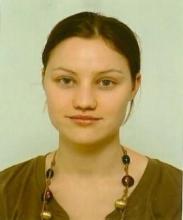Charmaine Koskinen
Human Trafficking Prevention: 2012 Olympics
Supervisor: Professor Jude Browne (UCCGS)
“I successfully defended my thesis last year and am currently employed at the American Museum of Natural History in New York City conducting African Ethnographic research. My experience at the University of Cambridge Centre for Gender Studies taught me the process of enquiry and carrying out quality research. I was intellectually challenged and encouraged to search beyond the obvious answers. Overall, the experience undertaking a PhD in Multi-Disciplinary Gender Studies prepared me for a research position in one of the top institutions in the world.”
Abstract:
My research focused on the politics of human trafficking prevention. In particular, I examined the policies implemented in the UK to counter the anticipated increase in human trafficking associated with the Olympics 2012. The study utilised a theoretical framework of political myths and ideologies, combined with historical accounts of ‘white slavery’, in order to understand the British Government’s approach to human trafficking prevention. This framework enabled me to examine the ideologies that both informed various prevention models and were used to justify anti-prostitution policies which led to an attempt to regulate sex workers. I argued that the debates and inconsistencies in the Government’s approach to human trafficking prevention can be understood in terms of clashing ideological positions on sex-work. In order to carry out this research, I was permitted to observe the Human Trafficking Network and London 2012 over a three year period. This is the Government body that was tasked with managing the response to expected increases in human trafficking during the Olympics. In addition, during a four month period based in London, I conducted interviews with: members of the Human Trafficking Network, the United Kingdom Human Trafficking Centre, MPs, governmental and non-governmental agencies, anti-trafficking groups, sex workers, sex workers outreach services, and local and international academics. In my conclusions, I hope to offer policy recommendations for human trafficking prevention programmes.

